Hospital
Infection prevention mask fitting device
Healthcare professionals working in the medical field who treat infectious diseases are required to wear the N95 mask correctly without any gaps so that they will not be affected.
Measurement of the adhesion rate of the mask to the face
It is important for the wearer to correctly select the N95 mask used in the medical field that suits his / her face and to carry out wearing training on a daily basis. If the degree of adhesion between the mask and the face is low, external air will enter the mask through the gap.

It is a measuring instrument for measuring the adhesion between the mask and the face. You can measure while checking the wearing condition of the mask with the attached mirror.
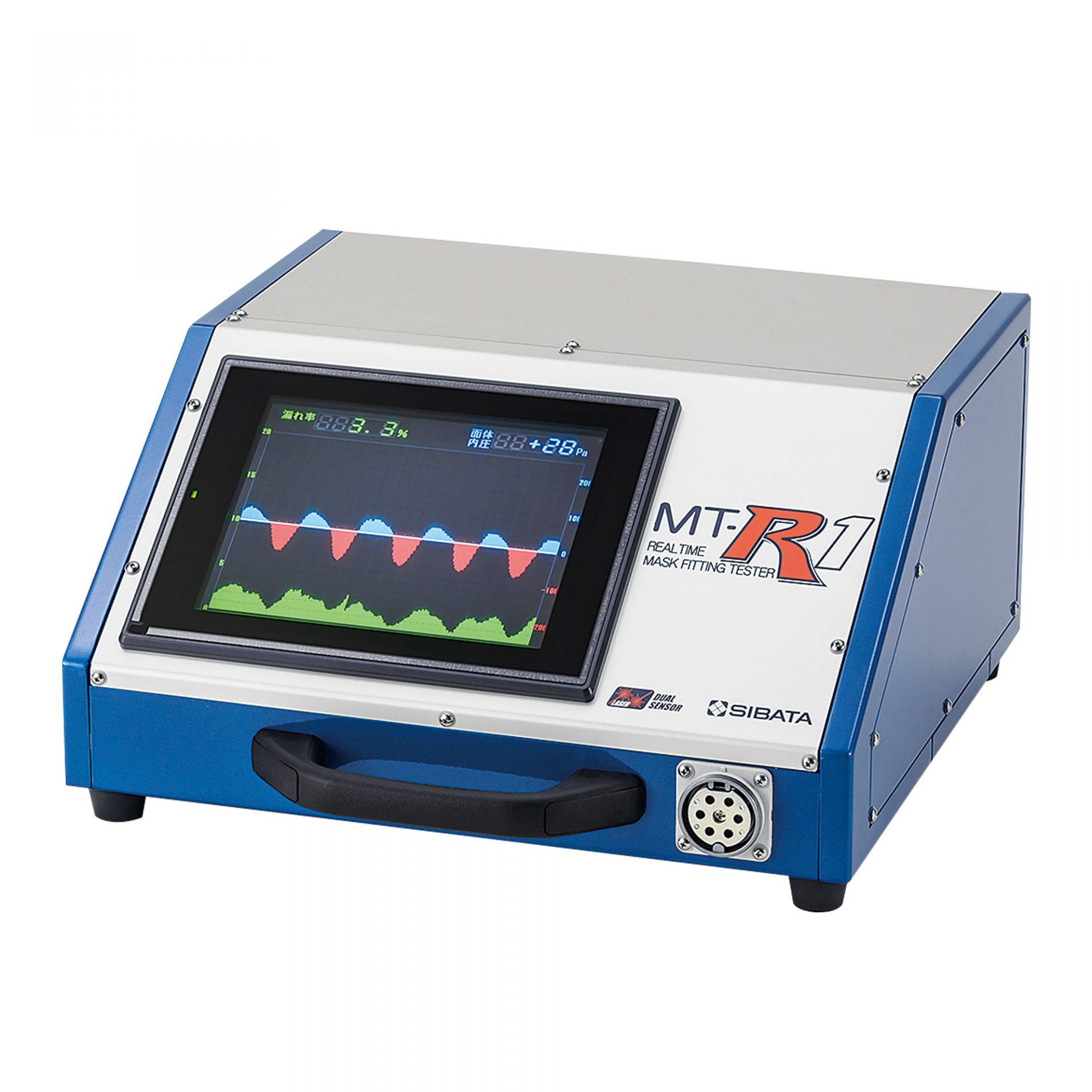
It is a measuring instrument for measuring the adhesion between the mask and the face. It is a high-performance type equipped with two detectors, and it is also possible to measure the pressure inside the mask.
● Real Time Mask Fitting Tester, Model MT-R1
Control of residual chlorine concentration in dialysate
Regarding the management of dialysis water, it is recommended to measure the concentration of total residual chlorine in the 2016 version of the dialysate water quality standard.
Measurement of total residual chlorine
Ammonia nitrogen may be contained depending on the source of dialysis water, which may combine with free residual chlorine for disinfection to produce combined residual chlorine (chloramine).If the activated carbon filtration device for making dialysis water exceeds the processing capacity, chloramine may be mixed in the dialysate, so management with total residual chlorine is recommended.
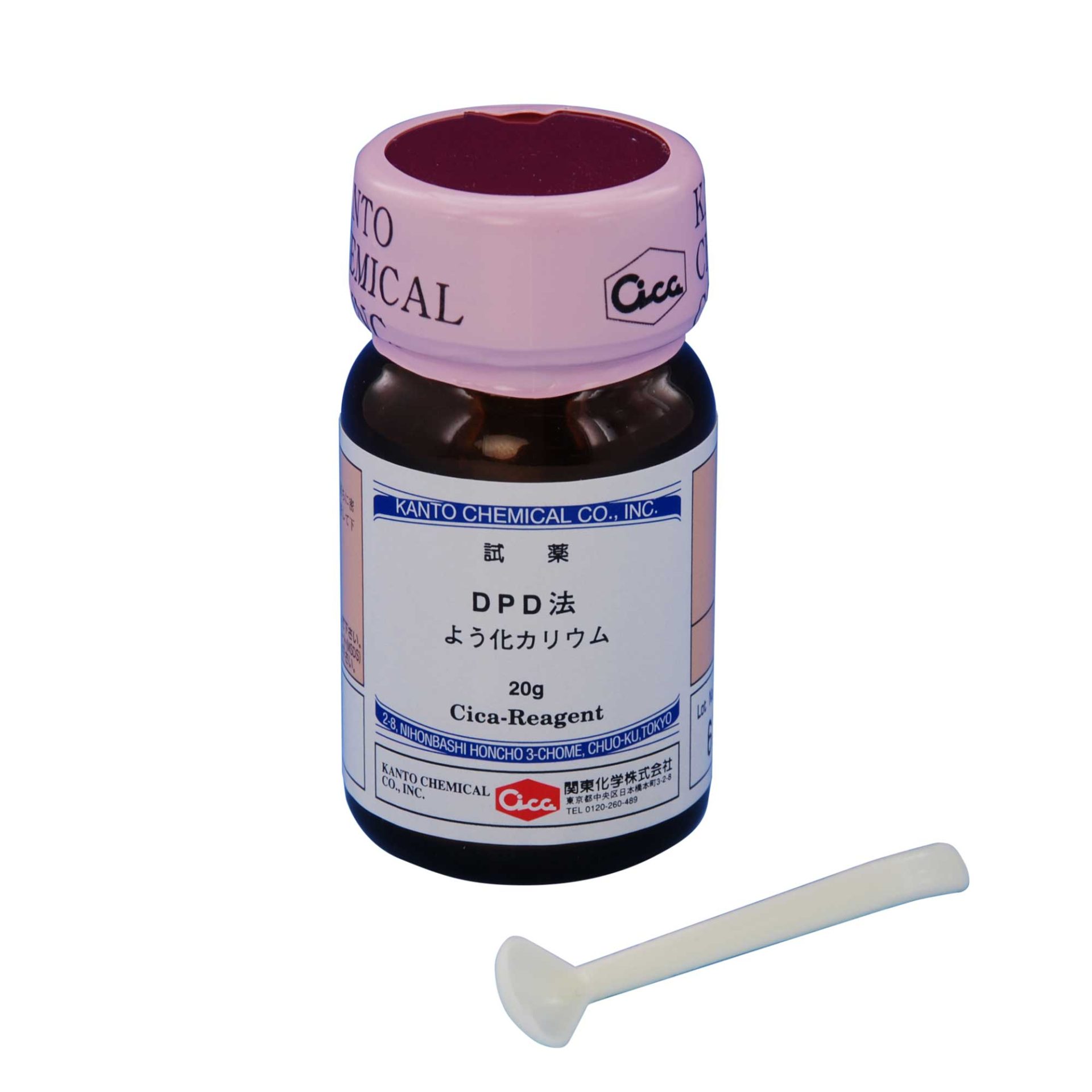
It is a reagent required when measuring total residual chlorine. It measures total residual chlorine when used in combination with the DPD reagent.
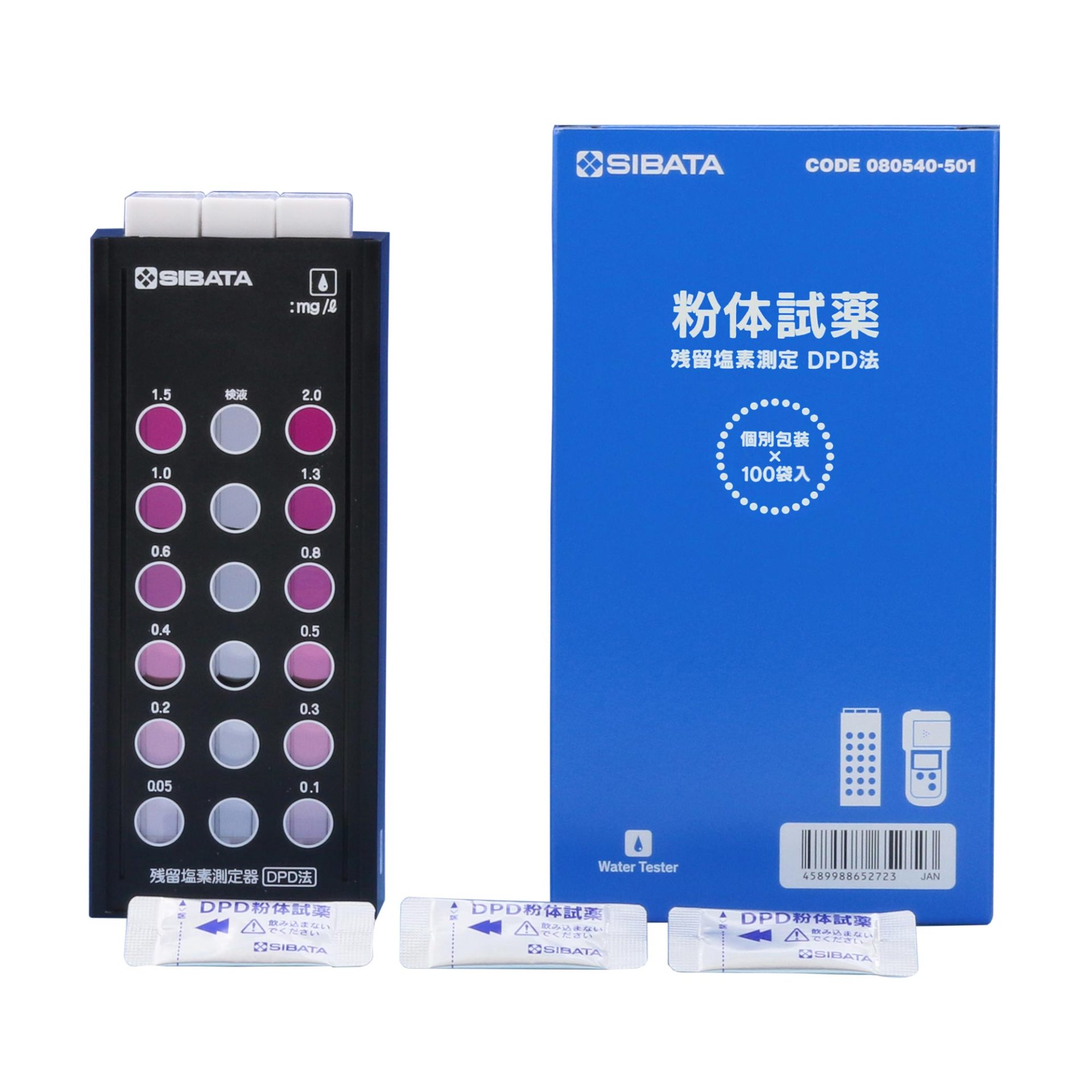
This is a typical visual measuring instrument used when measuring total residual chlorine. Potassium iodide is required to measure total residual chlorine.
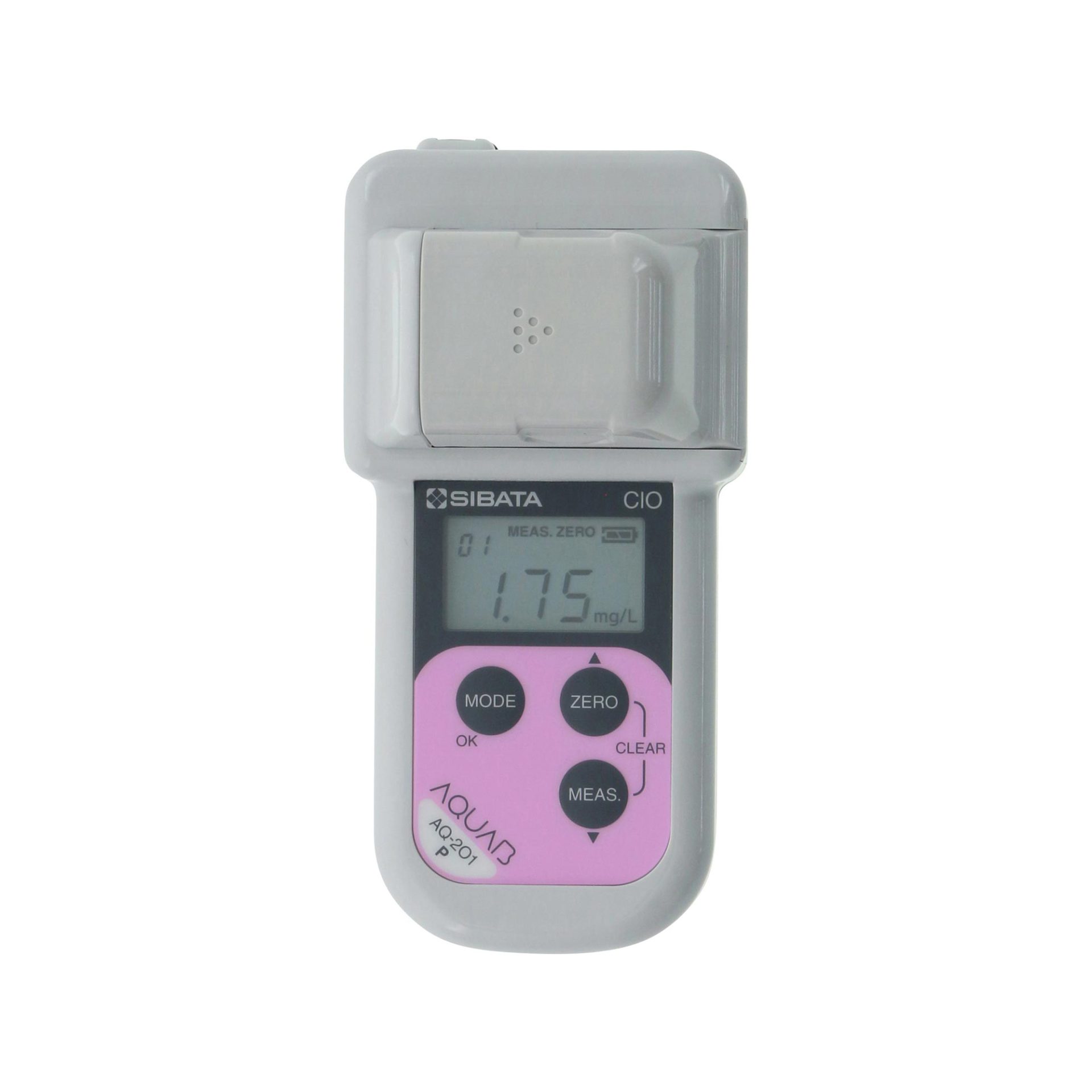
It is a digital residual chlorine measuring instrument used when measuring total residual chlorine. Potassium iodide is required to measure total residual chlorine.
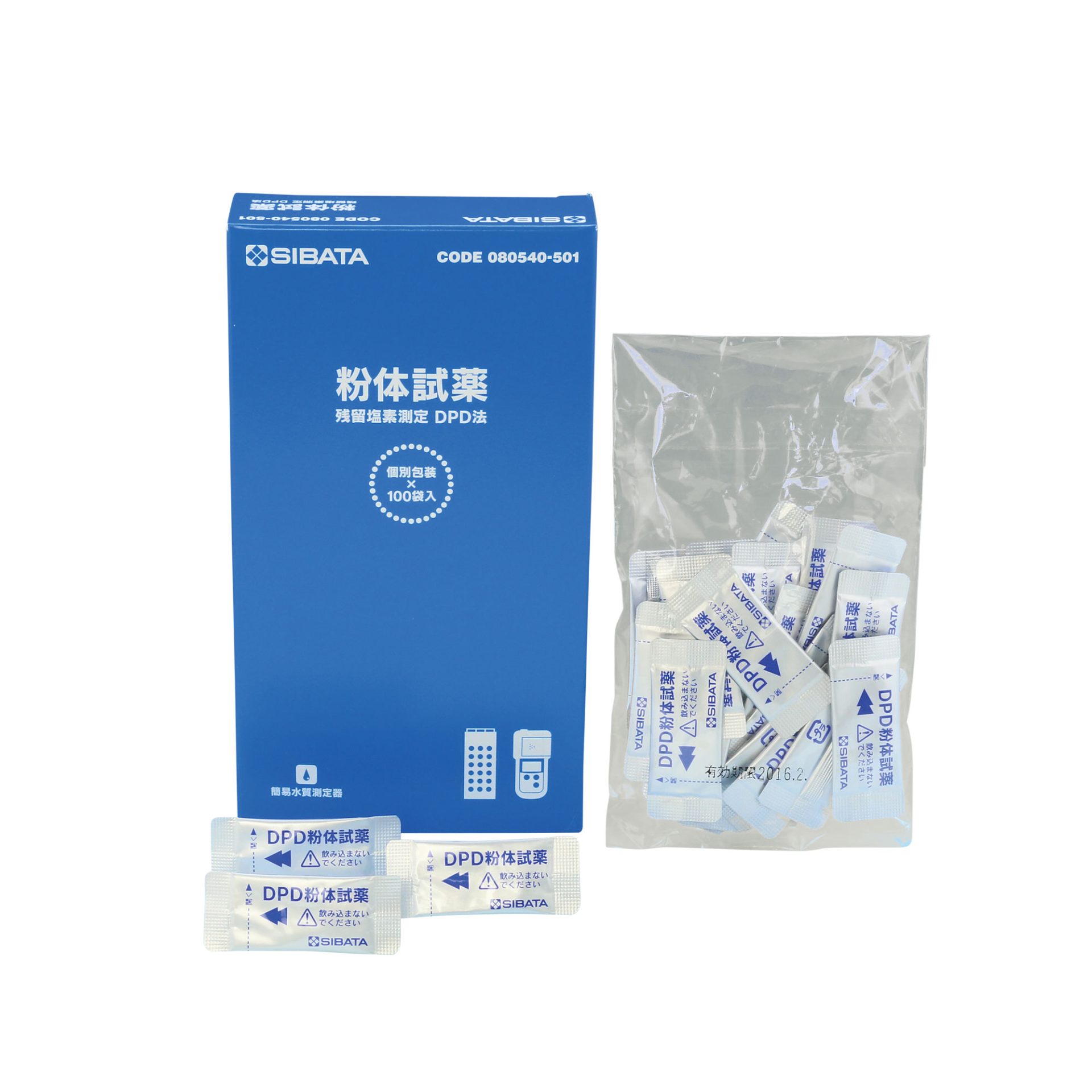
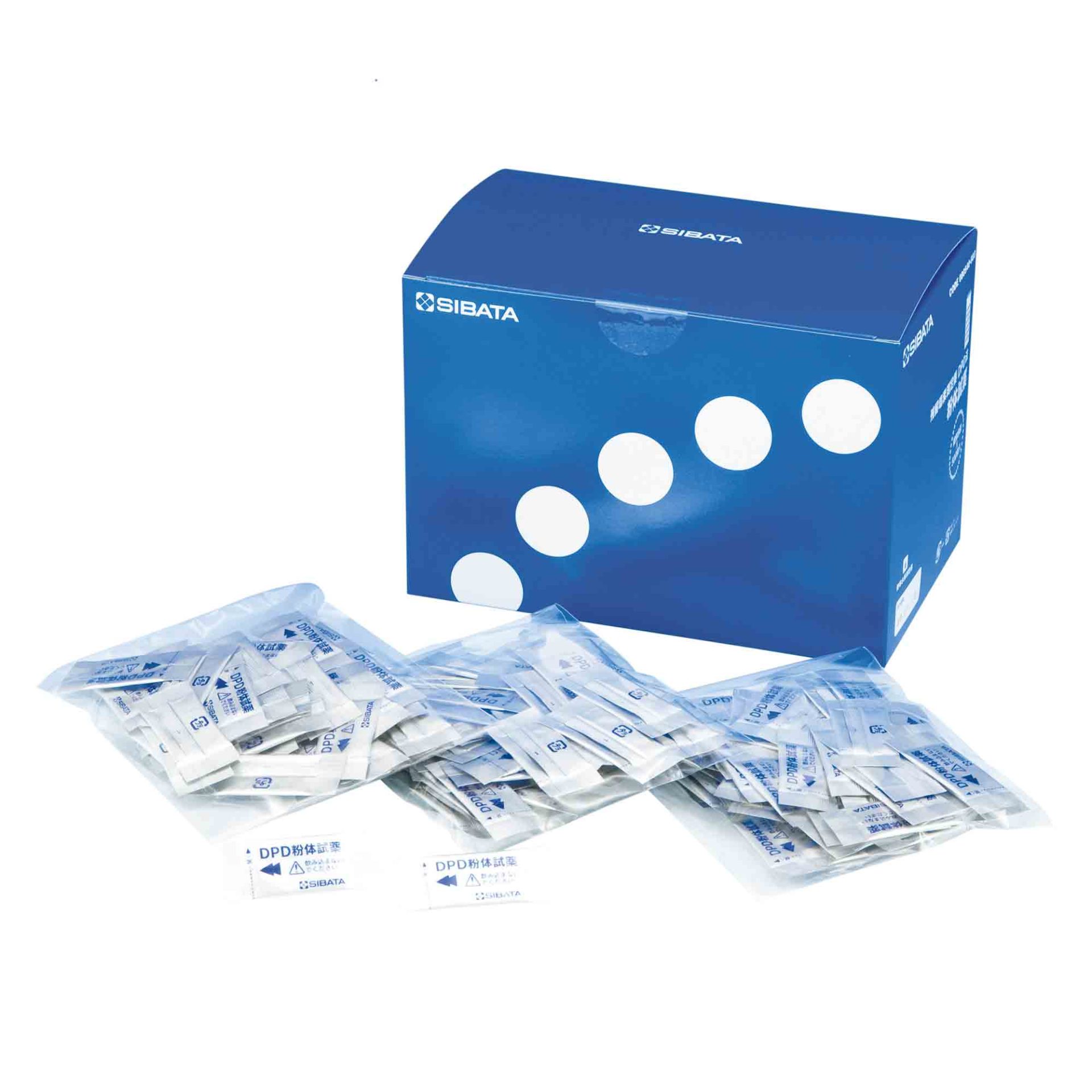
There are 100 and 500 DPD reagents for measuring the free residue chlorine as consumables.
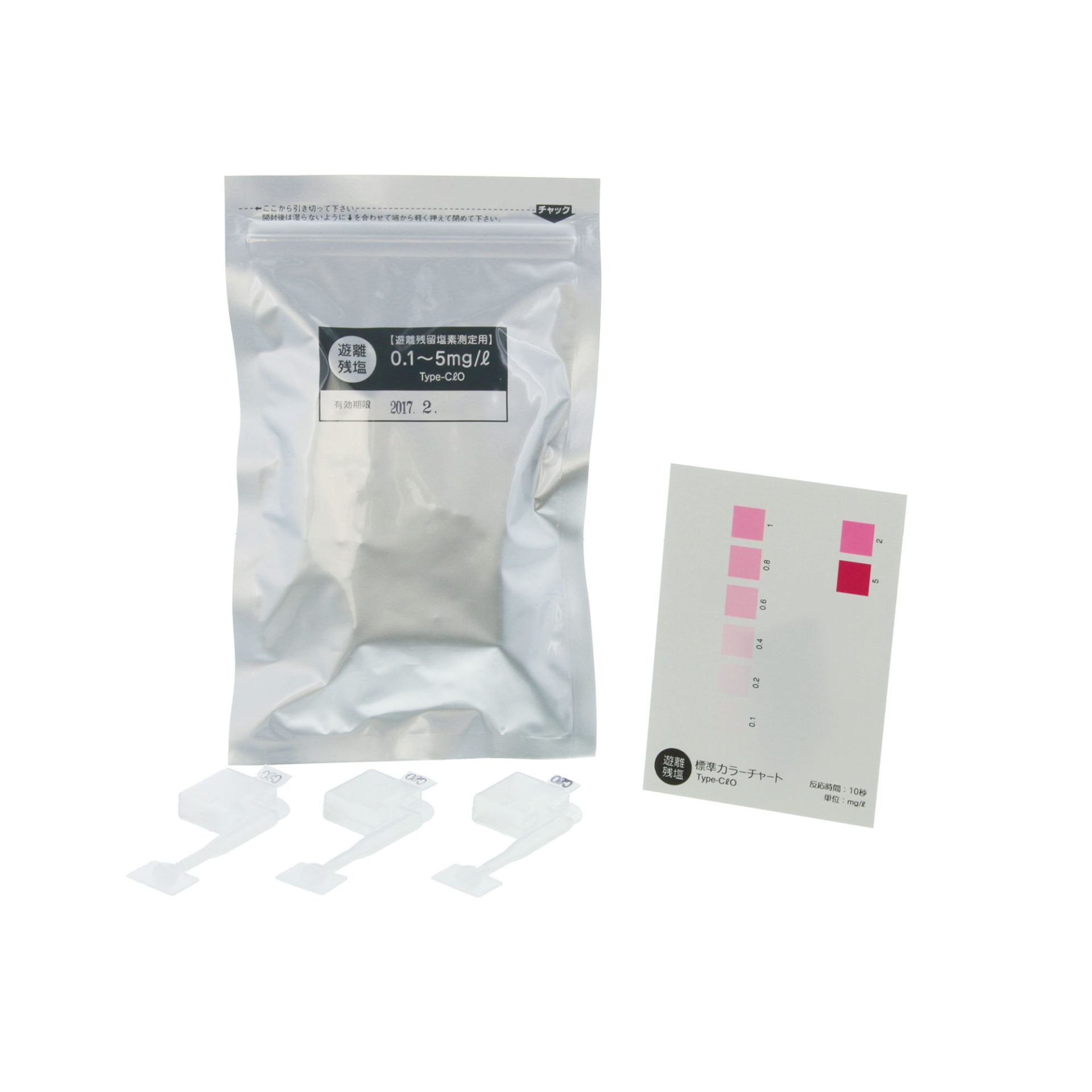
A simple water quality test kit for measuring total residual chlorine. Potassium iodide is premixed with the reagents enclosed in the pack, so it is possible to measure total residual chlorine in a single operation.
